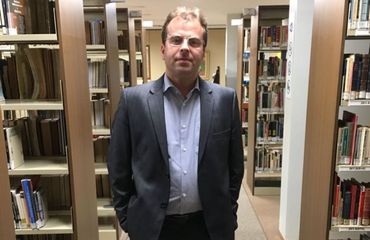São Paulo – Last Thursday (1), Economic Law professor and researcher Fabiano Jantalia defended a doctoral thesis on Islamic Finance at the Law School of the University of Brasília (UnB). The subject was unheard of in Brazil, despite being widely studied in Western countries – particularly in Britain, one of the freshly-minted PhD’s primary research sources.
The examination board approved and recommended for publication the piece "Law, Economics and Religion: Islamic Finance and its alternative financial intermediation arrangements.” It was the culmination of a project that took three years and nine months to complete for Jantalia, who holds a Law degree from the Rio de Janeiro State University (Uerj) and an MBA in Finance from Fundação Getúlio Vargas (FGV).
He grew interested in the subject as a result of his work. While researching doctorate subjects, Jantalia worked at the Brazilian Central Bank, and once he realized that Islamic countries stood apart in the international financial system, he started digging deeper.
“I realized Islamic finance assets would grow by 10% to 15% per year throughout the world crisis, while other assets, which we shall call ‘conventional,’ were plummeting,” Jantalia told ANBA. “From 2008 to 2014 the value of those assets tripled, showing that something new and beneficial was taking place.”
According to the researcher, the focal point of that uniqueness is the ethical principles of the Sharia, which underpin the structure of Islamic finance. “There are no interest charges or traditional speculation: everything is backed by real assets, and that creates a logic of a better distribution of profits and risks,” he explains.
Split risks
One of the aspects that differ from conventional finance is financing. An Islamic bank isn’t simply a provider of funds: it becomes a kind of partner in the operation.
A similar logic is employed in “sukuk”, an instrument akin to debt bonds of the conventional system, or in “takaful”, the insurance of Islamic banks: the risks are grouped and shared together. “It’s not only the non-collection of interest rates. I tried to show in my study that Islamic finances are more than just that, and that they can interact with the traditional system,” said Jantalia.
Now, this has become one of the goals of Jantalia, who is currently working as an advisor in Congress. In some of his analyses, studies and consulting jobs to MPs in drafting bills, the professor tries to introduce some mechanisms of Islamic finances to be applied in the Brazilian system.
“Each in their own way, there are six non-Islamic countries that use the Islamic system: United Kingdom, Luxembourg, France, Singapore, Hong Kong and South Korea. The idea is to do the same here,” he said.
Research
According to Jantalia, England has a lot of research on the subject. It was in the libraries of Durham, Oxford and Cambridge universities that the professor plunged into his studies. He also gathered material in talks with professors of the three universities and in, at least, three Islamic banks in the United Kingdom.
In Brazil, although the material is scarce, he visited mosques, talked with Angela Martins, regional manager for Latin America at National Bank of Abu Dhabi (NBAD), who is an expert on the subject, attended workshops at the Arab Brazilian Chamber of Commerce and seminars at the Federation of Muslim Associations in Brazil (Fambras). He also concluded the course on the Islamic World held by Brazil’s Ministry of Foreign Affairs (Itamaraty).
“My goal always was to contribute to the promotion of Islamic finances in Brazil. I wish that my thesis will serve as a basis for other researchers to take the opportunity and expand the topic,” says Jantalia. “Currently, Islamic assets in the world total between USD 1.9 trillion and USD 2.2 trillion and increase, on average, by 10% to 15% per year,” concludes the professor, promoting the topic so that other Brazilians will explore it further.
Translated by Gabriel Pomerancblum and Sérgio Kakitani




